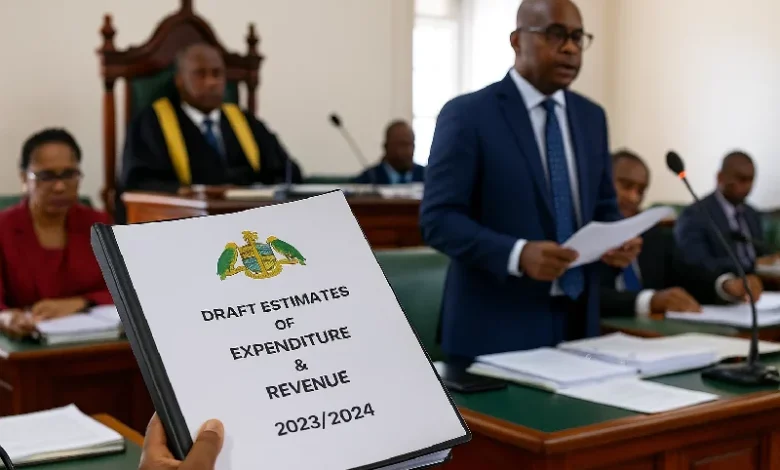Appropriation Act in Dominica

The Appropriation Act in Dominica serves as the principal legal mechanism through which Parliament authorises the government to spend public funds. Passed annually, it grants the Minister for Finance permission to withdraw specific sums from the Consolidated Fund, based on the national budget estimates. This Act is central to ensuring that all government spending is lawful, transparent, and aligned with the country’s fiscal priorities.
Constitutional Basis and Legal Framework
Grounded in Section 77 of the Constitution, the Appropriation Act ensures that no public funds are spent without prior parliamentary approval. Once the Minister of Finance presents the Estimates of Revenue and Expenditure for the fiscal year, Parliament debates and approves them through an Appropriation Bill. Once this Bill receives presidential assent, it becomes the Appropriation Act for that year.
Supporting laws such as the Finance Administration Act of 1994, the Public Finance Management Act, and the Audit Act of 1994 reinforce how funds are managed, reported, and audited. These frameworks work together to provide strong oversight of how public funds are allocated from estimates to actual spending.
Role of the Appropriation Act
The Appropriation Act is more than a formality. It contains detailed schedules assigning funds to ministries and departments, split into:
- Recurrent expenditure: Covering salaries, utilities, operations, and transfers
- Capital expenditure: Covering infrastructure, development projects, and equipment purchases
Once enacted, funds can only be released in accordance with these allocations. The Accountant General’s Department ensures compliance by matching disbursement requests to the approved limits.
In cases of unforeseen circumstances, the government may submit a Supplementary Appropriation Bill, which, once approved, becomes a new Appropriation Act covering the additional expenditure.
Understanding “Appropriation Acts” as a Broader Concept
While the term “Appropriation Act” refers to a single, specific law, typically the main budgetary authorisation for a fiscal year, the phrase “Appropriation Acts” refers collectively to all such Acts passed over time. This includes:
- The Annual Appropriation Act, which provides the base legal authority for spending each year
- Supplementary Appropriation Acts, which legalise extra-budgetary spending or adjustments after the annual Act has been passed
- Occasionally, Emergency Appropriation Acts are passed for rapid response to disasters or urgent national needs
Using the plural form helps capture the evolving nature of public expenditure across a given year or over multiple years. For instance, the 2009 Appropriation Act authorised general expenditure, while an Appropriation (Supplementary) Act later that year covered additional funds allocated for post-disaster recovery.
Controls and Oversight
The execution of spending under any Appropriation Act is subject to strict financial controls:
- Internal financial rules prevent departments from exceeding their approved limits
- The Director of Audit verifies whether the funds were used as Parliament intended
- The Public Accounts Committee (PAC) examines audit findings, investigates mismanagement, and recommends corrections
The link between the Appropriation Act and these oversight functions is critical to maintaining accountability in Dominica’s financial system.
Impact on Budget Discipline and Governance
By defining exactly how much money can be spent and for what purpose, Appropriation Acts enforce budget discipline. They also:
- Strengthen transparency, as each ministry’s spending is traceable to a specific line item
- Limit discretionary or unauthorised expenditures
- Provide the legal foundation for audits, performance reviews, and financial reporting
In times of crisis, such as hurricanes, pandemics, or global economic downturns, the timely passage of supplementary Appropriation Acts allows the government to respond swiftly without violating legal spending frameworks.
Evolving Practices and Reform
Modern financial reforms under the Public Finance Management Act and broader public sector modernisation efforts have transformed the way Appropriation Acts are prepared and implemented. These improvements include:
- Integration of performance budgeting, linking funds to measurable outcomes
- Use of digital treasury systems for more accurate tracking and reporting
- Greater public access to budget documents, fostering civic accountability
These updates reflect a growing emphasis on not only legal compliance but also efficiency and results in public finance.




